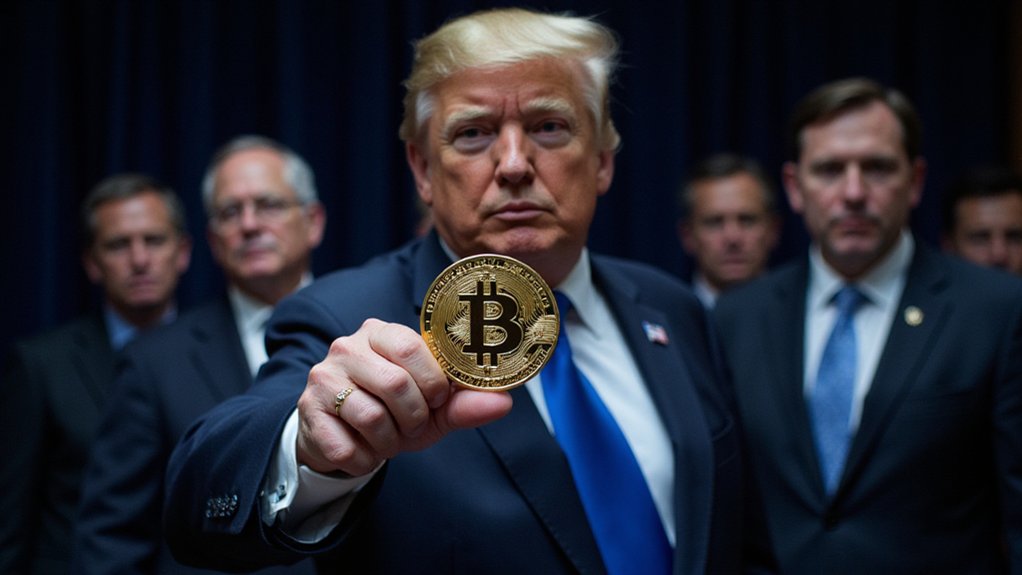A bipartisan cryptocurrency regulation bill faces an increasingly precarious future as nine Senate Democrats announced their opposition to cloture, throwing a legislative wrench into what industry proponents had hoped would establish coherent federal oversight for digital assets.
The emerging resistance—including from four senators who previously supported an earlier committee version—reflects growing concerns about recent GOP revisions and perceived conflicts with Trump’s crypto industry entanglements.
The bill’s procedural advancement now appears mired in partisan quicksand, requiring 60 votes to bypass a filibuster that Democratic leadership has tacitly encouraged during private caucus meetings.
Legislation languishes in procedural purgatory as Democratic leadership silently orchestrates filibuster resistance behind closed doors.
This parliamentary impasse jeopardizes not only the GENIUS Act but threatens to derail the entire 2025 crypto regulatory agenda, potentially leaving stablecoin issuers adrift in a sea of regulatory ambiguity.
At the heart of the controversy lies a Trump-hosted dinner for memecoin enthusiasts and MGX’s plan to leverage Trump-linked World Liberty Financial’s USD1 stablecoin—connections that have amplified Democratic skepticism about the legislation’s true beneficiaries.
While Trump champions the bill as essential for American competitiveness, opponents characterize it as a thinly-veiled vehicle for family financial windfalls.
The breakdown follows Schumer’s warning against supporting “industry-backed legislation” and underscores Republicans’ post-reconciliation dependence on Democratic votes—a legislative reality that stands in contrast to the earlier bipartisan Banking Committee approval.
Critics further allege that the revised bill introduces systemic vulnerabilities by granting private stablecoin issuers disproportionate advantages without adequate oversight mechanisms, potentially enabling destabilizing runs on non-bank-issued stablecoins and creating conflicts with existing state-level frameworks.
For the crypto industry, the impasse perpetuates regulatory uncertainty for major players like Circle and Paxos, elevates compliance costs amid conflicting federal/state expectations, and undermines the global competitiveness of USD-backed stablecoins.
The bill—once viewed as crypto’s regulatory salvation—now exemplifies Washington’s capacity to transform promising financial innovation frameworks into collateral damage in the theater of partisan brinkmanship.
The controversy extends to the broader cryptocurrency ecosystem where entrepreneurial efforts like meme coin creation have flourished in the absence of clear regulatory guidelines, with developers leveraging blockchain platforms to launch tokens tied to popular cultural references.









